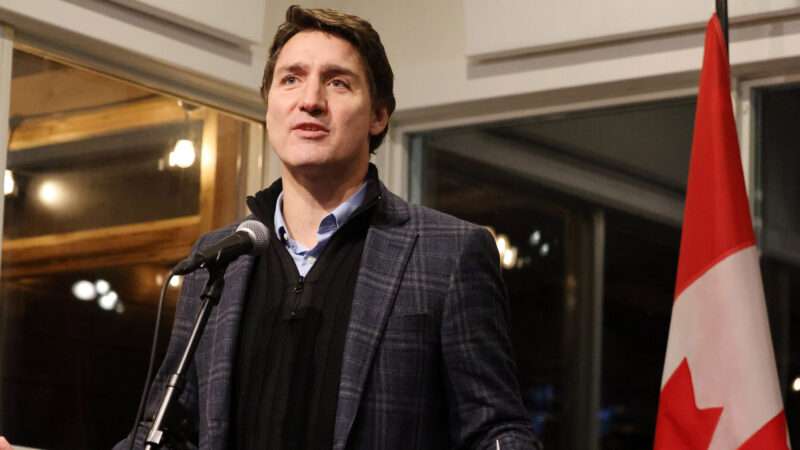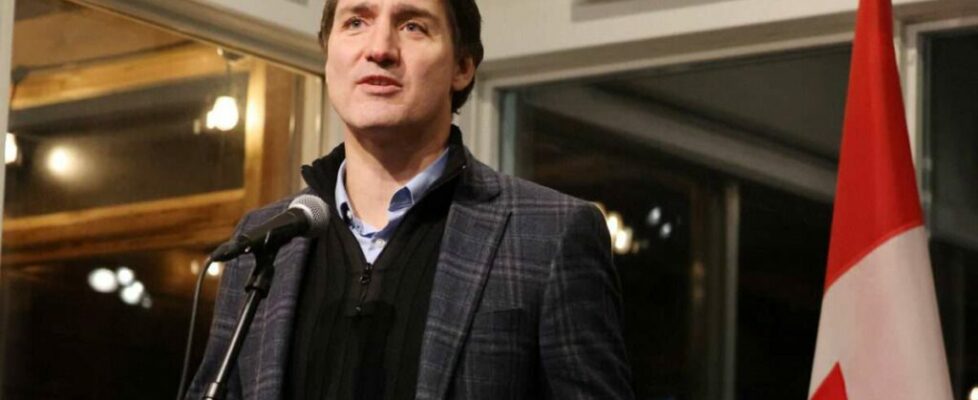Justin Trudeau’s ‘One Regret’ Is Not Implementing Ranked Choice Voting in Canada

As he heads for the exit, Canadian Prime Minister Justin Trudeau says his “one regret” is not overhauling the voting system Canadians will use to choose the next parliamentary majority.
“I do wish that we’d been able to change the way we elect our governments in this country so that people could simply choose a second choice or a third choice on the same ballot,” Trudeau said in his resignation statement earlier this week.
He’s talking about ranked choice voting, which has been adopted in two American states and a few dozen smaller jurisdictions. Under that format for deciding elections, candidates must get a majority of the votes cast (rather than simply getting the largest plurality, as in the more widely used first-past-the-post system). The candidate with the fewest votes in the first round of counting is eliminated, and his or her votes are redistributed to other candidates depending on those voters’ second choice. The process repeats until someone has a clear majority.
Trudeau said that a ranked-choice system means “parties would spend more time trying to be peoples’ second or third choices, and people would be looking for things they have in common.”
That’s a small but vital change. Under a first-past-the-post system, candidates have no incentive to be a second choice, since voters are only able to vote for one option—even if they see that option as merely the lesser of two evils, as is often the case.
That incentivizes a lot of nasty things like the negative partisanship that has come to define so much of American politics lately—and, apparently, Canadian politics too, though I’m sure they are more polite about it. That, in turn, might be contributing to the decline in satisfaction with democracy on display across most of the world right now. In Canada, for example, Gallup found that just 52 percent of people are satisfied with democracy in 2024, down from 66 percent a few years ago.
An electoral system that incentivizes candidates and parties to do a better job appealing to the median voter might help turn that trend around. Your first choice for office might lose, but you might get more satisfaction out of seeing a second- or third-choice candidate win, rather than the all-or-nothing process that’s more widely used now.
As Trudeau also mentioned in his remarks, he did not have the power as prime minister to unilaterally change Canada’s electoral system. Convincing political parties to support this switch has been a problem in the U.S. too, as evidenced by the successful campaigns against voting reforms in several western states last year.
Still, probably the most surprising thing about all this is Trudeau labeling the ranked choice voting issue as his “one regret,” when it seems like there should be at least a few others. For example, the vaccine mandate for many Canadian workers and anyone who wanted to cross the country’s border, or the aggressive response to the protests triggered by those policies—including freezing the bank accounts of some truckers who were peacefully protesting the rules. He should probably also regret weakening Canada’s protections for free speech.
Against that track record, Trudeau saying that he regrets failing to change Canada’s electoral system comes off as a bit cynical—as if he believes he’d have been able to stay in power if ranked choice voting was used, despite how many Canadians dislike him. But that’s not quite right. Trudeau has been forced out by members of his own party, not because he lost an election (the American equivalent would be the unseating of then-Speaker of the House Kevin McCarthy in 2023).
Ranked choice voting wouldn’t have saved Trudeau from being bounced from power. Still, the outgoing prime minister is correct that it would offer a better way for Canadians to signal their political preferences in the upcoming general election.
The post Justin Trudeau’s ‘One Regret’ Is Not Implementing Ranked Choice Voting in Canada appeared first on Reason.com.
